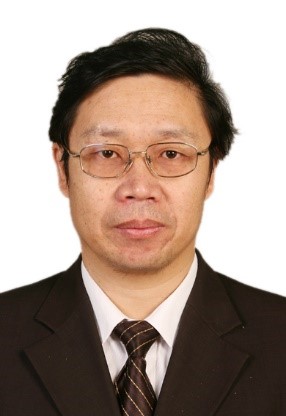
Prof. Changwei Pang
China University of Petroleum(Beijing), China
Title: Cross-cultural Ecological Governance and Global Climate Regeneration Path Analysis
Abstract:
Legal system for China's response to climate change, guided by the concept of ecological civilization, is constantly improving, and ecological technology innovation is widely used in energy transition and restoration. The integration of ancient Confucian and Taoist thoughts of "the unity of heaven and man" and "the superiority of heaven and man" with modern civilization has formed a sustainable development theory system with Chinese characteristics. Culture is the core of national spirit and the source of creativity, and it is the original driving force for progress and the leading force for economic and social development. In the contemporary world, culture is facing a transformation from the pursuit of a single economic value to green creation. natural ecological environment is the "natural productive force of labor". Human virtues can not be separated from the nourishment of nature, and the natural world can cultivate a good nature. Cross-cultural ecological governance requires all countries to establish the concept of harmonious coexistence between man and nature in the process of modernization of traditional culture, and promote the integration of ecological culture and economy. It will be more efficient for all countries to form an ecological-climate community of destiny to restore the earth's natural regulation capacity than to carry out ecological projects on their own, which is the best choice for human beings. The core concept of climate regeneration is to restore the earth's self-healing ability, and to play its role in absorbing carbon dioxide and regulating temperature by protecting and restoring various ecosystems such as forests, oceans, and wetlands, as to achieve the goals of climate stability and ecological security.
1. Cross-cultural Ecological Governance: The Integration of Ecological Culture and Economy; The Low-carbon of Civilization: Low-carbon City, Low-carbon Life, Low-carbon Economy, Low-carbon Society
2. Measures to Promote Climate Regeneration: Development, Ecological Technology, Green Financial Mechanism; Low-carbon Technology, Carbon-free Technology, Carbon Reduction Technology, Carbon Removal Technology
3. Low-carbon: Low-carbon Agriculture, Industry, Construction, Transportation, Development of Carbon Trading Market
4. Energy Transition: Establishing and Perfecting the Legal System for Green Low-carbon Energy Transition, Establishing a Unified Open and Competitive Modern Energy Market System, Perfecting the Economic Incentive Policy for Energy Transition
5. Ec-Climate Community of Destiny, Climate Diplomacy
Conclusion
China will continue to coordinate the reduction of carbon, pollution reduction, expansion of green, and growth, the comprehensive green transformation of economic and social development, follow the goals and principles of the United Nations Framework Convention on Climate Change and the Paris Agreement, and make continuous contributions the global response to climate change.
References
1. Pang Changwei: Green transformation creates a new pattern of China's international energy cooperation, People's Forum, 2022-9.
2. Li Zhengxi, Jin Guoliang: Low-carbon Ecological View - The Chinese Dream of Low-carbon Development andological Civilization, China Economic Publishing House, 2015.
3. Droege, P. Beyond Paris: emergency imperatives for global policy and local. Sustain Earth Reviews 8, 2 (2025). https://doi.org/10.1186/s4205-024-00100-y
4. Paul Hawken: Regeneration: Ending the Climate Crisis in One Generation, China Science and Technology House, 2023.
5. China 21st Century Agenda Management Center: Ecological Compensation Principles and Applications, Social Science Literature Publishing House, 2009.
6. Guo Geng: Harmony between Man and Nature: Ecological Civilization and Green Action, Shandong Education Press, 2011.
7. Deng Chundong: Research on the Ideology of Ecological Civilization Construction, People's Press, 2018.
Biography:
Pang Changwei, PhD in Law, postdoctoral fellow in Resource Economics at the Energy Systems Research Institute of the Russian Academy of Sciences. Director of the Russian and Central Asian Research Center at China University of Petroleum, registered with the Ministry of Education, Vice Dean of the China Russia Energy Joint Research Institute at China University of Petroleum (Beijing), doctoral supervisor of the first level discipline of Marxist theory, regional and country studies on the Sinicization of Marxism, and interdisciplinary international energy law, research field: ecological civilization and energy security; Great power relations, Russia Central Asia issues, etc. Completed more than ten projects funded by the National Social Science Fund, including "Research on Russia's Energy and Resource Strategy and Oil and Gas Diplomacy" (03BGJ023), major projects of Beijing Municipality, Ministry of Education, and PetroChina, and published multiple academic papers in core journals such as "Russian Studies", "Journal of Xinjiang Normal University", "Northeast Asia Forum", and "People's Forum". Director of the China Russia Eastern Europe and Central Asia Society, and Director of the China Russia Relations History Society; Executive Director of the International Political Branch of the Beijing Higher Education Association and Director of the China Society of International Relations. Elected as a foreign academician of the Russian Academy of Natural Sciences in April 2018. Editorial board member of Russian magazines "Industrial Production Safety", "Russian Higher Education Oil and Gas Journal", "Drilling and Petroleum", and "Energy Management".